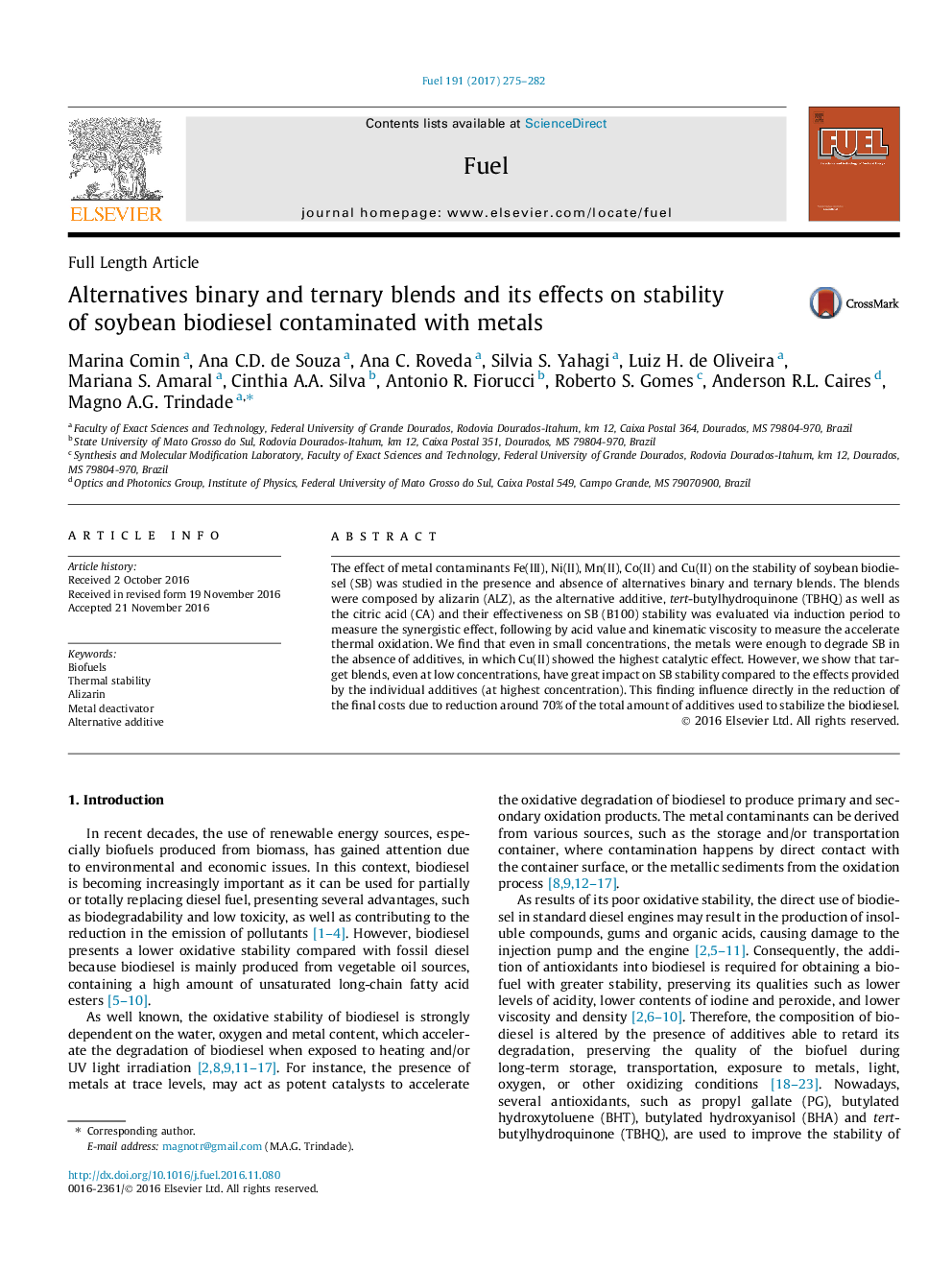| Article ID | Journal | Published Year | Pages | File Type |
|---|---|---|---|---|
| 4768771 | Fuel | 2017 | 8 Pages |
Abstract
The effect of metal contaminants Fe(III), Ni(II), Mn(II), Co(II) and Cu(II) on the stability of soybean biodiesel (SB) was studied in the presence and absence of alternatives binary and ternary blends. The blends were composed by alizarin (ALZ), as the alternative additive, tert-butylhydroquinone (TBHQ) as well as the citric acid (CA) and their effectiveness on SB (B100) stability was evaluated via induction period to measure the synergistic effect, following by acid value and kinematic viscosity to measure the accelerate thermal oxidation. We find that even in small concentrations, the metals were enough to degrade SB in the absence of additives, in which Cu(II) showed the highest catalytic effect. However, we show that target blends, even at low concentrations, have great impact on SB stability compared to the effects provided by the individual additives (at highest concentration). This finding influence directly in the reduction of the final costs due to reduction around 70% of the total amount of additives used to stabilize the biodiesel.
Keywords
Related Topics
Physical Sciences and Engineering
Chemical Engineering
Chemical Engineering (General)
Authors
Marina Comin, Ana C.D. de Souza, Ana C. Roveda, Silvia S. Yahagi, Luiz H. de Oliveira, Mariana S. Amaral, Cinthia A.A. Silva, Antonio R. Fiorucci, Roberto S. Gomes, Anderson R.L. Caires, Magno A.G. Trindade,
